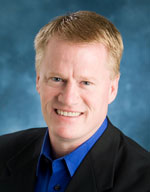Column: The Other Side of Fielding Yost
Two weeks ago, I wrote about one of the University of Michigan’s lowest moments, when athletic director Fielding H. Yost scheduled Georgia Tech for a football game in 1934, which required Michigan to sit out its star player, Willis Ward, because Southern teams would not take the field against African-Americans.
The attention Yost’s decision received surprised and embarrassed him. In his limited view of the situation, Yost thought he was simply providing a courtesy for a friend, not making a racial stand. National newspapers, radio programs and even Time magazine featured the controversy prominently. It also sparked bitter debate among students, and created a morale problem on the team. By all accounts the players felt Ward was intelligent, hard-working and well-liked.
That was the bad news – very bad news. The good news, as I wrote, is that the press, the alums, the students, and particularly Willis Ward and his roommate on the road, Gerald Ford, had the courage of their convictions, and derived lasting change from the incident.
But I feel it necessary to fill out this story, to give it more depth, and perspective. [Full Story]





